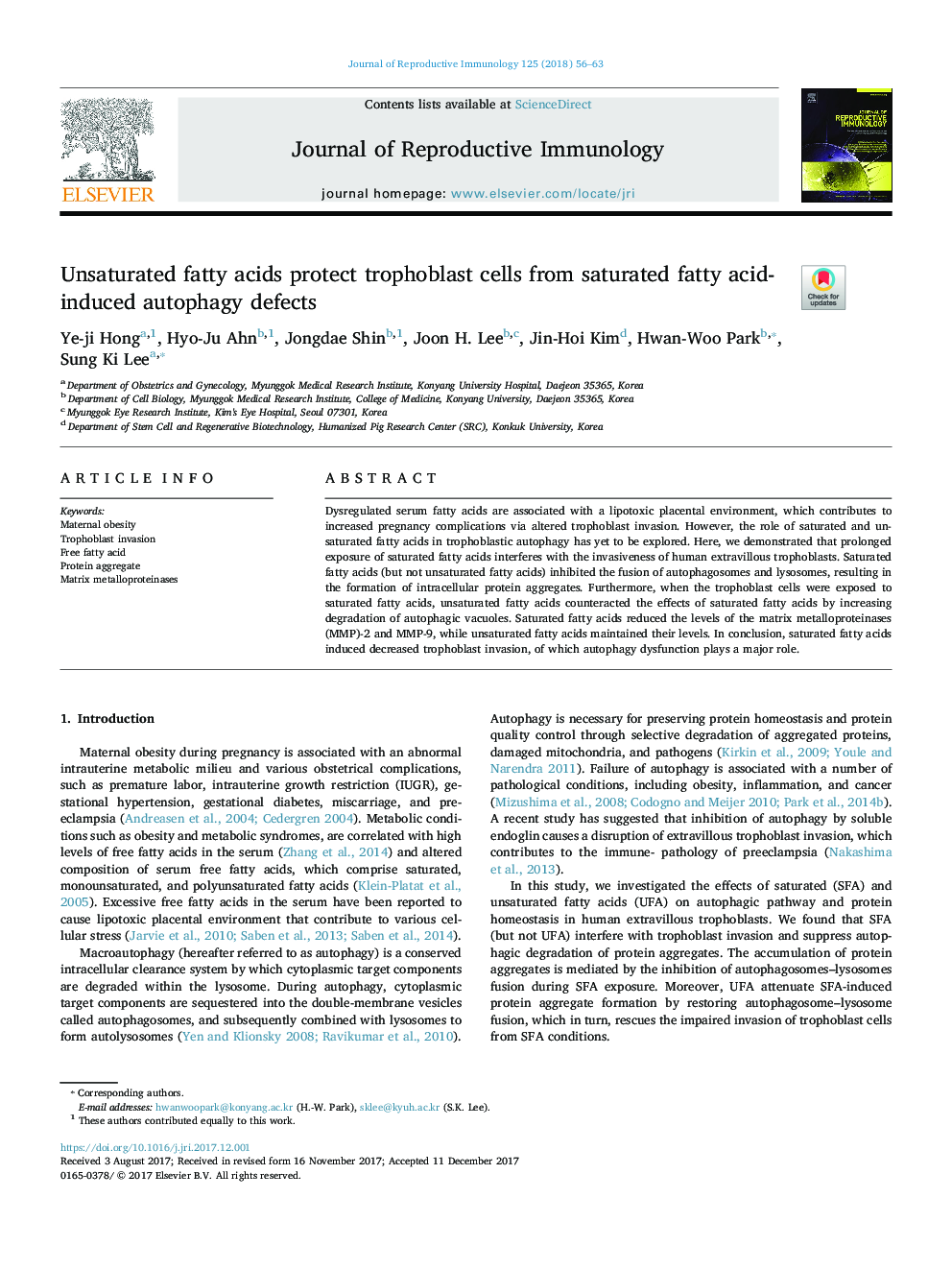| Article ID | Journal | Published Year | Pages | File Type |
|---|---|---|---|---|
| 8782863 | Journal of Reproductive Immunology | 2018 | 8 Pages |
Abstract
Dysregulated serum fatty acids are associated with a lipotoxic placental environment, which contributes to increased pregnancy complications via altered trophoblast invasion. However, the role of saturated and unsaturated fatty acids in trophoblastic autophagy has yet to be explored. Here, we demonstrated that prolonged exposure of saturated fatty acids interferes with the invasiveness of human extravillous trophoblasts. Saturated fatty acids (but not unsaturated fatty acids) inhibited the fusion of autophagosomes and lysosomes, resulting in the formation of intracellular protein aggregates. Furthermore, when the trophoblast cells were exposed to saturated fatty acids, unsaturated fatty acids counteracted the effects of saturated fatty acids by increasing degradation of autophagic vacuoles. Saturated fatty acids reduced the levels of the matrix metalloproteinases (MMP)-2 and MMP-9, while unsaturated fatty acids maintained their levels. In conclusion, saturated fatty acids induced decreased trophoblast invasion, of which autophagy dysfunction plays a major role.
Keywords
Related Topics
Life Sciences
Immunology and Microbiology
Immunology
Authors
Ye-ji Hong, Hyo-Ju Ahn, Jongdae Shin, Joon H. Lee, Jin-Hoi Kim, Hwan-Woo Park, Sung Ki Lee,
